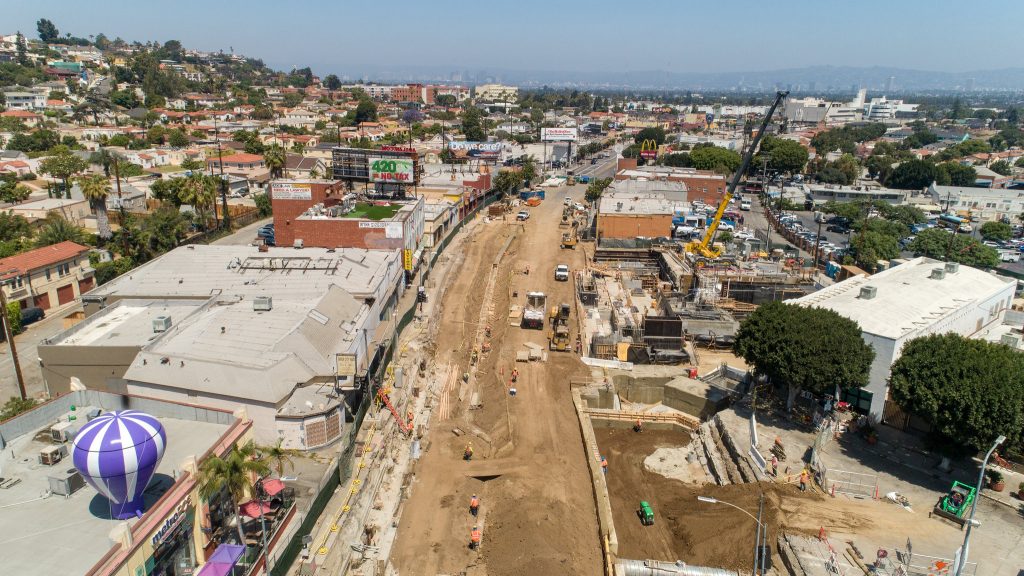House committee grills USDOT on transit funding delays
The House Transportation and Infrastructure Committee held an oversight hearing on Tuesday, July 16, to question the Federal Transit Administration (FTA) about its ongoing failure to release billions of congressionally-appropriated funds for local transit projects in a timely fashion through the transit Capital Investment Grant (CIG) program.
While the hearing’s second panel was far less informative or helpful (more on that later), the first panel consisted solely of Acting FTA Administrator K. Jane Williams answering questions from a number of committee members about the impacts of USDOT’s and FTA’s efforts to slow down grants from the lone federal program dedicated to building new and expanded public transit.
Chairman Peter DeFazio (D-OR) opened strong, reporting committee staff’s analysis of FTA’s data on its administering of the Capital Investment Grant (CIG) program. (You can read the full findings here.) Staff found that delays in obligating CIG funds have doubled since the Obama administration, despite Trump administration claims that “environmental reviews” were what slowed down delivery, according to DeFazio.
Committee staff also found that the CIG cost share of transit projects has decreased, falling from an Obama administration height of CIG funds composing 50 percent of a project’s funding to now, where CIG funds constitute no more than 36.6 percent. According to DeFazio, this is because the FTA has made it known to transit agencies that projects asking for “over 40 percent won’t be funded or will receive a low rating.”
The FTA’s spreadsheet sleight-of-hand
Back in April, the FTA released a statement announcing $1.36 billion in federal funding “allocations” to 16 projects. As we’ve noted already, allocations are simply a spreadsheet exercise. While normally an important step in the typical process for grants, no agreement is signed, no money changes hands and local communities are not able to proceed with construction.
In her testimony, Acting FTA administrator K. Jane Williams referenced allocating $825 million worth of CIG projects this year, saying that, “in our administration, when we make an allocation, it is our signal that we will sign a grant agreement.”
That was certainly the case during previous administrations, and the Acting Administrator’s comment is welcome. However, the Acting Administrator did not state how long communities should expect to wait between an allocation and a grant agreement. Indeed, FTA’s actions over the last two-and-a-half years tell a different story. Under this administration, projects have languished for months after receiving an allocation. Many that received allocations last year are still waiting for their signed grant agreement that actually give them the funding to proceed.
Because Trump’s USDOT requested zero dollars for new transit projects for two years , FTA also halted the standard practice of publishing clear reports along with the annual budget request that specifically described which projects would receive funding that fiscal year. Without these reports (and even less information publicly available online) it is difficult for Congress and the public to hold the FTA accountable. Allocating funds without these reports, and without a clear commitment to advancing projects through the pipeline, is confusing and misleading to the public.
There are certainly delays coming from somewhere
Acting Administrator Williams was asked very directly about delays for these projects, and she gave a direct but very carefully worded answer: “There is not an FFGA, SSGA or Letter of No Prejudice on my desk, my leadership’s desk, or OMB’s desk. So there are no delays happening.” When asked a follow-up question about her answer, she affirmed that “there is not one single project waiting for my action as I sit here today.”
But that’s exactly the problem: nobody—transit agencies, local governments, or us at T4America—know precisely what is causing delays. This is made worse by the FTA no longer publishing the reports that enable Congress and the public to hold them accountable.
The Acting Administrator blamed delays on local communities. However, we know that it has been nearly 500 days since FY2018 appropriations were signed, and FTA still has not identified the specific CIG projects for all of the available 2018 funding. We also know that local communities and project sponsors report poor communication with FTA, a lack of transparency, and numerous bureaucratic hurdles to advancing projects.
If FTA will not help local communities then the projects will never advance to the Acting Administrator (or anyone else’s) desk—it’s a catch-22.
Committee members from both parties understand how important transit is
Rep. Greg Pence (R-IN) doesn’t have any CIG projects in his district. But he knows that investing in transit is good for his state not just by improving people’s transportation options, but by supporting manufacturing jobs up the supply chain. Trains and buses and rails all need to be built; investing in transit directly supports these industries. Indiana is home to 193 of these manufacturers.
Across the aisle, Rep. Alan Lowenthal (D-CA) grilled the FTA Acting Administrator on whether the FTA records and calculates the cost to communities of transit funding delays. The (roundabout) answer: if the FTA does collect that information, it won’t be sharing it.
Testimony about transit focused on roads
After two hours of testimony and questions spotlighting the FTA, a second panel focused on transit capital grants with testimony from the American Road & Transportation Builders Association (ARTBA), the American Public Transportation Association (APTA), and the Kansas City Streetcar Authority. Although the House T&I committee is charged with writing policy and has no jurisdiction over money, these testimonies, particularly ARTBA’s, went straight to talking about the Highway Trust Fund.
There was also a lot of discussion about the upcoming surface transportation reauthorization, an issue that House T&I has jurisdiction over but was not the focus of the hearing.
There was one cool and unexpected comment, though: APTA’s president, Paul Skoutelas, proudly told the committee that he doesn’t own a car, saying “I take the bus.” We love that!
Some transit agencies are unwilling to speak up
We’ve heard that local governments and transit agencies are hesitant to be publicly critical of the FTA—especially when they have projects in the pipeline or in development. The only witness before the House T&I Committee that actually applied for CIG funding was the Kansas City Streetcar Authority. The agency is waiting for $330 million to extend its popular line. We were thrilled to hear that they have had a positive experience. However, plenty of other agencies have seen their costs rise because of delays, a few of which we chronicled before the hearing, and which were well documented in the Committee staff report.
By the time this second panel started with ARTBA, the T&I Committee room had mostly emptied out, signaling that perhaps the members of the committee were as skeptical about the utility of this second panel as we were before the hearing.
On what does the House T&I Committee have jurisdiction?
Members and witnesses alike both regularly strayed into off-topic remarks that were beyond both the topic of the hearing (transit grants) and the jurisdiction of the committee. Raising the gas tax received a lot of air time, as well as electric vehicles, autonomous vehicles, and of course the obligatory mention of Hyperloop.
Yet the House Transportation and Infrastructure Committee has limited or no jurisdiction over these things. Especially the question of raising the gas tax—that’s a matter for the powerful House Ways and Means Committee.
What this committee does have jurisdiction over is how the FTA administers transit grant programs. The first half of the hearing was a good start, but the small amount of progress the FTA has made in the last year has been the direct result of pressure from the public and Congress, and the committee will need to keep up the urgency on advancing these projects in a timely fashion.





















Pingback: Transportation For America – House oversight hearing on transit grants left unanswered questions